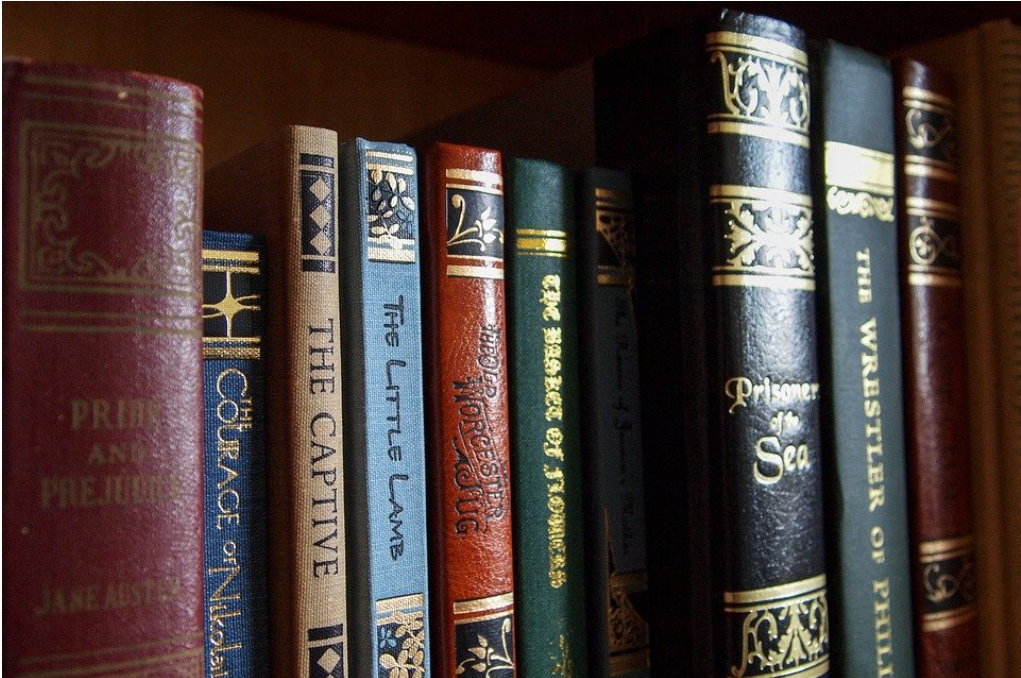Classic vs. Contemporary Literature: Finding the Right Balance in Your Reading List
In the world of literature, there's a timeless debate: classic or contemporary? Each offers a unique experience, transporting readers to different worlds and eras. But do you have to choose? Finding the right balance between classic and contemporary literature can open up a world of literary richness. In this article, we'll explore the merits of both and share tips on how to strike a harmonious balance in your reading list.
1. Classic Literature: Timeless Tales
Classic literature encompasses works that have stood the test of time, continuing to captivate readers across generations. These books often hold profound insights into human nature, society, and the human condition. Some of the most celebrated authors, such as Jane Austen, Charles Dickens, and William Shakespeare, belong to this category.
2. The Richness of Language and Style
Classic literature is renowned for its rich and intricate language. The prose can be ornate, poetic, and laden with symbolism. Reading classics allows you to immerse yourself in beautifully crafted sentences that have been cherished for centuries.
3. Gaining Historical Perspective
Classics offer a window into the past, providing invaluable insights into the historical, social, and cultural contexts of their time. They can deepen your understanding of different eras, shedding light on the challenges, values, and customs of bygone societies.
4. Universal Themes and Enduring Relevance
Despite being set in different times and places, classic literature often grapples with universal themes—love, ambition, justice, and morality. These themes resonate with readers even in the present day, showcasing the enduring relevance of classic works.
5. Contemporary Literature: Reflections of Modern Life
Contemporary literature reflects the issues, concerns, and complexities of today's world. It provides a mirror to our contemporary society, addressing topics like technology, diversity, identity, and globalization. Authors like Chimamanda Ngozi Adichie, Haruki Murakami, and Zadie Smith are prominent voices in contemporary literature.
6. Immediate Relatability
Contemporary literature can feel more relatable because it deals with situations, technologies, and societal norms that are familiar to us. Reading contemporary works can offer a sense of immediacy and relevance that may be absent from older classics.
7. Exploration of Diverse Perspectives
Contemporary literature often places a strong emphasis on representing diverse voices and experiences. It provides a platform for underrepresented groups, allowing readers to gain insights into different cultures, identities, and worldviews.
8. Fresh Approaches to Storytelling
Authors of contemporary literature may experiment with narrative styles, blending genres, and pushing boundaries in ways that challenge traditional storytelling conventions. This creativity can lead to fresh and innovative reading experiences.
9. Balancing Tradition and Innovation
Balancing classic and contemporary literature in your reading list allows you to appreciate both the timeless wisdom of the past and the dynamic creativity of the present. It provides a well-rounded literary education that spans centuries and encompasses a wide range of human experiences.
10. How to Strike the Right Balance:
Set Reading Goals: Determine how many classics and contemporary works you'd like to read within a specific time frame. This can help you maintain a balanced approach.
Join a Book Club or Reading Group: Participating in a book club or reading group can expose you to a diverse range of books, both classic and contemporary, and provide opportunities for discussion and reflection.
Embrace Diversity in Authors and Genres: Seek out classic and contemporary works from authors of different backgrounds, cultures, and perspectives. This diversity will enrich your reading experience.
Listen to Recommendations: Be open to recommendations from friends, family, or online communities. They may introduce you to books you might not have considered otherwise.
11. Rediscovering Classics in a New Light
Revisiting classic literature can be a transformative experience, especially when you approach it with fresh eyes and a new perspective. As you grow and evolve, you may find deeper layers of meaning and relevance in books you've read before.
12. Engaging with Contemporary Themes
Contemporary literature often grapples with pressing issues of our time, such as climate change, social justice, and technological advancements. By engaging with these themes through fiction, you can gain a deeper understanding of the complexities and challenges facing our world today.
13. Exploring Cross-Generational Conversations
Balancing classics and contemporary works in your reading list can lead to fascinating cross-generational conversations. You may find parallels between the themes in a classic novel and a modern one, sparking discussions about how literature reflects and shapes our society over time.
14. Adapting to Changing Tastes
As your interests and tastes evolve, so too should your reading list. Balancing classics with contemporary literature allows you to adapt to changing preferences and explore new genres, styles, and authors.
15. Appreciating Literary Influences
Contemporary authors often draw inspiration from classic works. By reading both, you can appreciate the interplay between the literary traditions of the past and the innovative voices of the present. Recognizing these influences can deepen your appreciation for the craft of storytelling.
16. Encountering Different Storytelling Cultures
Classic literature from various regions of the world offers unique insights into different storytelling traditions and cultural perspectives. Contemporary literature, too, provides a platform for authors from diverse backgrounds to share their stories and enrich the global literary landscape.
17. Finding Escapism and Reflection
Both classic and contemporary literature offer opportunities for escapism and self-reflection. Whether you're transported to a different era through a classic novel or prompted to contemplate current societal issues in a contemporary work, reading provides a space for both escape and introspection.
18. Supporting Emerging Voices
While classic authors have left an indelible mark on literary history, contemporary literature allows you to discover emerging voices and support authors who are shaping the future of storytelling. By exploring new releases, you contribute to the vitality and diversity of contemporary literature.
19. Curating a Personal Reading Journey
Your reading list is a reflection of your life journey. By striking a balance between classics and contemporary works, you create a narrative of your evolving tastes, interests, and intellectual pursuits over time.
20. Celebrating the Timelessness of Storytelling
In the end, whether a story was written hundreds of years ago or last year, the power of storytelling endures. Both classic and contemporary literature serve as windows into the human experience, offering insights, emotions, and perspectives that resonate across time and generations.
Conclusion: Embracing the Ever-Evolving World of Literature
The world of literature is vast, encompassing a rich tapestry of voices, stories, and ideas. By embracing both classic and contemporary works, you open yourself up to a diverse range of experiences, insights, and emotions. Let your reading list be a testament to the enduring power of storytelling and the infinite ways it can touch and transform our lives.







